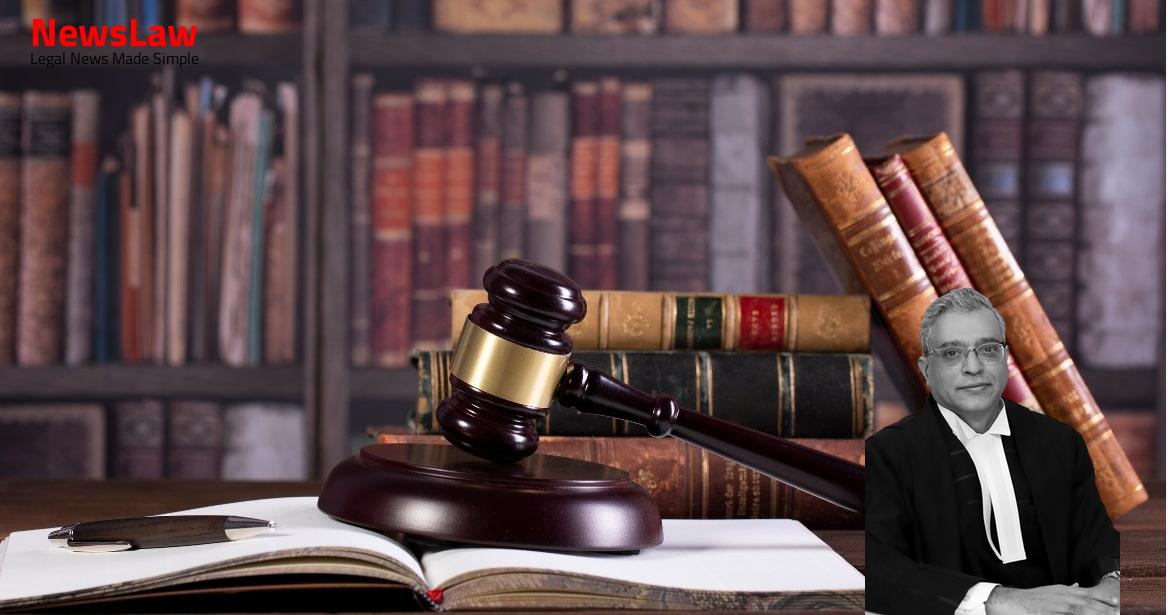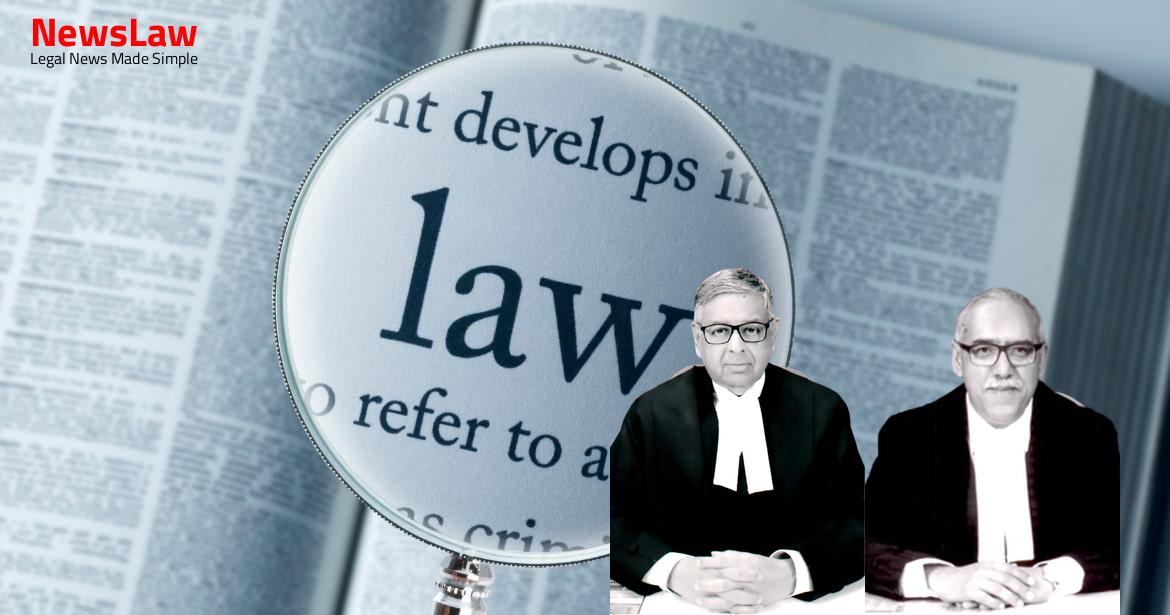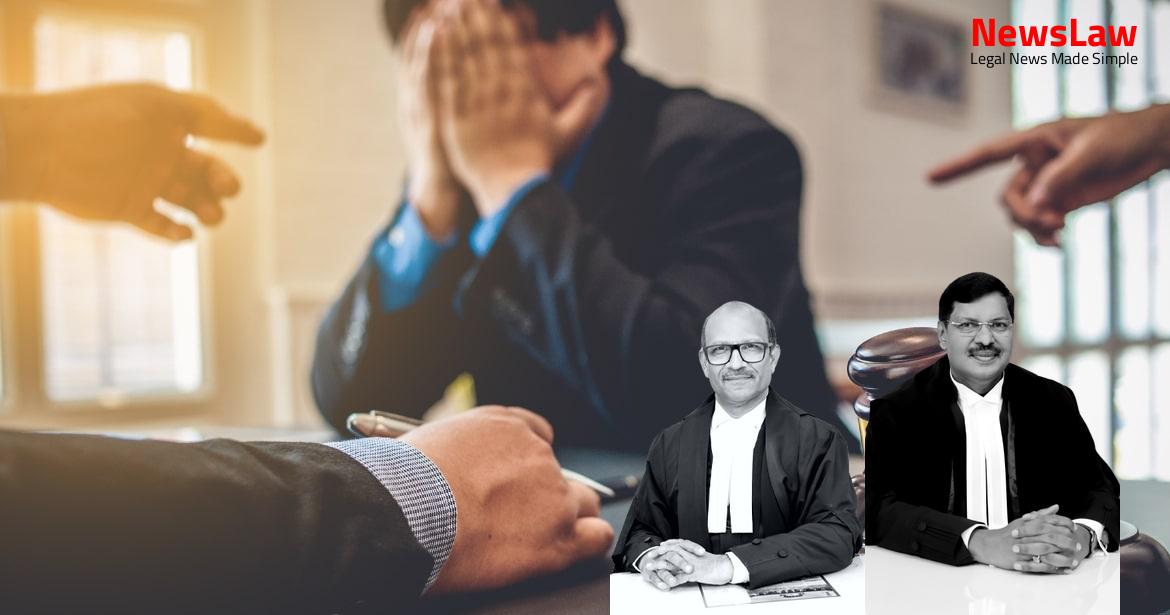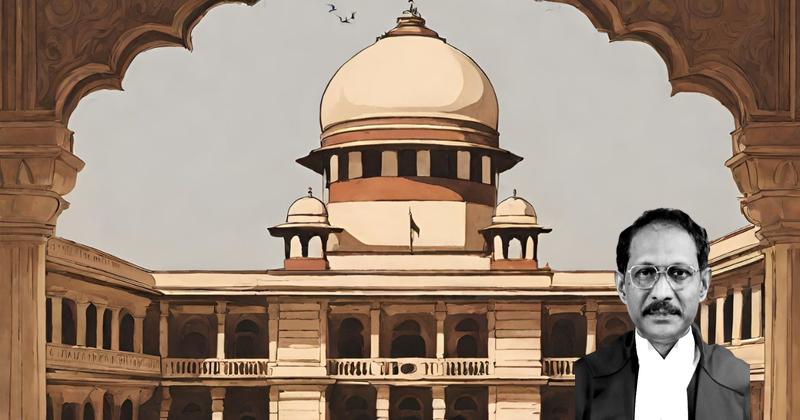Explore the fascinating world of legal intricacies as we dissect the reversal of a case decision by the High Court. The court’s astute analysis of witness testimonies, investigative shortcomings, and evidentiary complexities provides a unique insight into the workings of the justice system. This blog delves into the court’s meticulous scrutiny of the case, highlighting key factors that led to the reversal of the original decision. Join us on this journey through the realm of legal analysis.
Facts
- The Session Judge acquitted all three accused due to lack of evidence beyond reasonable doubt.
- The High Court allowed the appeal filed by the State of Madhya Pradesh and convicted Mohan and Prahlad for the offence under Section 302 read with Section 34 of the IPC.
- Jagdish (Accused No.3) remained acquitted by the High Court.
- The judgement of the Division Bench of the High Court of Madhya Pradesh at Jabalpur in Criminal Appeal No. 247 of 1993 reversed the acquittal of Mohan and Prahlad.
- Ramesh was attacked by a Katta shot and died on the way to Indore.
- A murder case was registered as Merg No. 18 of 1991 in Harda, where postmortem was conducted.
- The prosecution alleged political enmity between Ramesh and the three accused, who conspired to kill him.
- Charges were framed for offences under Section 120-B and 302 of the IPC, along with other relevant sections.
- Accused pleaded not guilty, claiming false implication due to village politics.
- Police received written information from Dr. Kailash Narayan Singhal about Ramesh being brought to the hospital in critical condition, leading to the registration of FIR.
- The police inspector visited the spot of occurrence after the FIR was registered.
- The State of Madhya Pradesh appealed the decision, leading to the case being brought before the High Court.
Also Read: Presumption of Genuine Endorsements in Cheque Case
Arguments
- Mr. Tankha and Ms. Upadhyay argued that the learned Sessions Judge acquitted all accused due to discrepancies in the case.
- They contended that the High Court erred in reversing this decision without giving reasons.
- The prosecution withheld witness statements recorded in 1991, as stated by Mr. Tankha.
- The reliance on P.W.2-Mahesh’s testimony by the High Court for conviction was criticized.
- Mr. Tankha highlighted shoddy prosecution conduct and the gross error in overturning the acquittal.
- The presence of contradictions and multiple versions in the case diary was pointed out by Mr. Shrivastava.
- The High Court based the conviction on the sole testimony of P.W.2-Mahesh, as argued by Mr. Shrivastava.
- A reference to the ‘Anil Phukan vs State of Assam’ case emphasized reliability of single eyewitness testimonies.
- The double-edged nature of previous enmity in establishing motives or false implications was discussed.
- The conversion of acquittal into conviction without evidence and issues in seizures/recoveries were raised.
- Mr. Abhinav Shrivastava, representing the respondent-State of Madhya Pradesh, argued that gaps in the investigation should not lead to the acquittal of the accused when the evidence implicates them.
- The High Court found that the Sessions Judge overlooked the testimonies of various eye-witnesses, which were corroborated by the recoveries linked to the accused.
- The Sessions Judge dismissed the eye-witnesses’ accounts due to their relation to the deceased and animosity with the accused, a stance contested by Mr. Shrivastava.
- Mr. Shrivastava contends that if there is additional evidence besides investigative shortcomings, acquitting the accused solely based on these gaps is unwarranted.
- He referenced the Sunil Kundu and another vs State of Jharkhand case to argue that testimony from interested witnesses, like those related to the deceased, should not be discounted if found credible.
Also Read: Medical Negligence and Compensation: A Landmark Decision
Analysis
- Multiple inconsistencies and contradictions in the evidence and statements of witnesses have been highlighted.
- The investigation conducted by the Investigating Officer (I.O.) was deemed unfair and lacking in proper procedure.
- Different versions of events and statements have been presented by the prosecution, creating doubt and confusion.
- Witnesses’ testimonies were found to be contradictory and unreliable, raising questions about the prosecution’s case.
- The High Court’s reliance on the testimony of P.W.2-Mahesh for the conviction of the accused has been critiqued.
- The recovery of the Katta and Motorcycle at the instance of the accused was considered inconsistent with the evidence.
- Issues regarding the handling of the investigation, witness statements, and lack of proper documentation have been highlighted as serious lapses.
- The judgment discusses the various factors that led to the acquittal of the accused and questions the justification of the decision.
- Enmity is a double-edged sword and must be considered with caution.
- Duty is cast upon the court to examine the testimony of inimical witnesses with due caution and diligence.
- Enmity can be a ground for false implication.
- The court must be circumspect in evaluating the evidence of inimical witnesses.
- Recovery of the Katta by the accused No.1-Mohan is shown to be made at the same time as the arrest on 26 June, 1991.
- The distance between the Police Station and the place of recovery is about 5 km.
- The Katta was recovered from an open place accessible to the public.
- There is no Panchnama on record to show how the recovery was made, casting doubt on the reliability of the said recovery.
- The High Court erred in reversing the acquittal order by the Sessions Judge as the recovery was questionable and not free from doubt.
- The High Court exceeded its scope of interference in an appeal against acquittal by reversing the well-reasoned order of acquittal.
Also Read: Remand of Writ Petition for Restoration and Decision on Merits
Decision
- The present appeals are allowed.
Case Title: PRAHALAD Vs. THE STATE OF MADHYA PRADESH (2022 INSC 753)
Case Number: Crl.A. No.-002043-002043 / 2009



